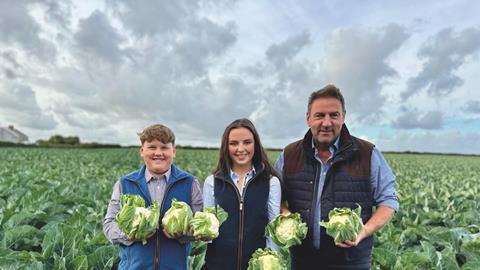With dwindling engagement from younger generations, the issues of succession planning and recruitment have become more pressing than ever on UK fruit and vegetable farms
For a large number of UK farmers, the issue of passing on ownership of a farm is of huge concern. Having to work into your retirement isn’t everyone’s cup of tea, yet many simply have no choice.
According to UK recruitment company MorePeople, it varies considerably how far ahead farmers look when planning future workforce requirements. According to its data, some 30 per cent don’t look beyond six months, while only 17 per cent plan over three years into the future. “I think people often don’t know where to begin, or make time to sit and think about where future issues will likely occur,” says MorePeople CEO Andrew Fitzmaurice.
Succession planning
Succession planning typically involves assessing current talent, providing targeted training and development, and actively preparing individuals from the next generation for leadership roles.
The primary goal is to create a pipeline of talented and skilled employees who can seamlessly transition into critical positions, minimising disruption and ensuring the continuity of operational success.
The Azets Barometer, an annual survey of the business climate in the UK and the Nordics, revealed in January that fewer than one in 10 UK businesses have succession planning fully integrated into their strategy, despite 30 per cent of companies demonstrating a widespread recognition of its importance.
UK head of corporate finance at Azets, Lee Humble, says in a report from MorePeople: “Succession should be high up on the agenda of every business owner, particularly in the current economic climate.
“Meticulous planning that is fully embedded into your business strategy ensures future-proofing and strategic continuity.
“It’s imperative that business owners think about their options and take control of their exit route before it becomes forced.”
When it comes to succession, Fitzmaurice advises companies to consider whether future gaps can be solved by developing internal talent or whether an external appointment will be required.
“Recruiters are blessed with the time and the resource to map the wider market,” he says. “We talk to thousands of candidates each month. Companies may as well benefit from all this perspective by engaging with a decent recruitment partner.”
Labour shortages
Ongoing labour shortages on UK farms are further exacerbating the issues surrounding succession planning and recruitment.
“The pronounced shortage of talent with experience in our sectors has always been there – or at least for the whole time we have been in business,” says Fitzmaurice. “Automation is always going to play a part, but it’s expensive and rarely the panacea for all hiring challenges.”
He adds that there are resources available for training and developing young talent. “If some of those who ‘don’t make it’ stay in the industry in other roles then that’s a net gain for us all.”
The impact of Brexit on the agricultural workforce is one of the most significant factors to ongoing labour shortages. Managing director of Southern England Farms, Greville Richards, highlights the challenges of the UK government’s six-month visa scheme for horticultural workers, noting it’s beneficial for some, but not all, businesses.
“There are lots of horticultural businesses which need staff, but depending on the season and the produce being grown, they are only wanted for six to eight weeks,” he says.
On the flip side, a six-month scheme isn’t long enough to help growers plant and harvest for the whole of the summer. Due to diminishing numbers of registered migrants who have been granted settled status and work in horticulture, Richards adds that the UK is becoming “very reliant on the agricultural workers scheme”.
The next generation
Enticing younger generations to join the farming industry is a crucial element of succession, in Fitzmaurice’s view. While many family businesses are bringing their children into the farming sector, there remains a struggle in finding young talent externally to continue the vital work of UK producers.
He explains that while there are “lots of great initiatives” for young people, those attending farming recruitment events and training courses are “already en route to the sector”.
Fitzmaurice continues: “We need to attract those without a family interest in farming and horticulture. A history, chemistry or business grad could just as well work in farming or horticulture.”
The reason these graduates don’t often enter the sector is that they don’t know about it and have “no clue how many great and varied roles exist”, he says.
Richards echoes this view. “Succession is a major problem,” he says. “I think businesses will have to adapt. I think they’ll probably have to invest more in CapEx for harvesting equipment, for example, to shorten harvesting. People don’t want to be up at three o’clock in the morning heading off to the field in June and July.”
Ultimately though, Richards believes the sector will always find enough staff. It just needs to unlock their potential.




